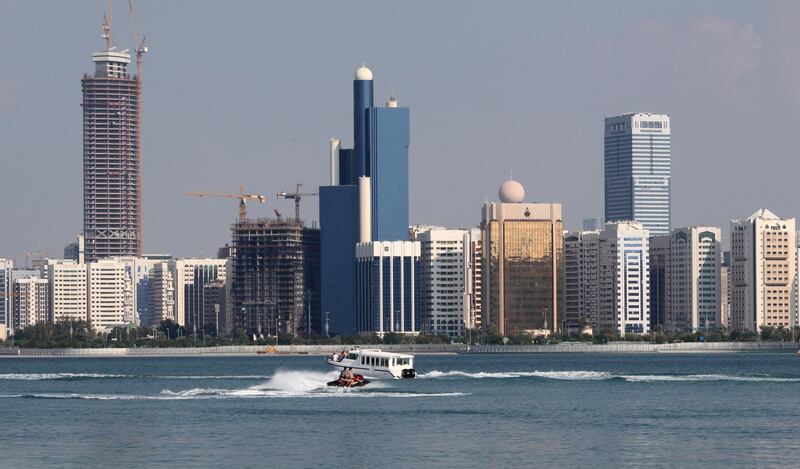Abu Dhabi’s plan to invest Dh50 billion ($13.6bn) over three years to stimulate the economy is expected to be covered by an increase in hydrocarbon revenues as rebounding oil prices give the emirate more room to spend.
The economic stimulus package will amount to 5 per cent increase in government spending, which can be bridged by petro-dollars if oil prices remain above $60 per barrel during the implementation of the plan, Moody’s Investor Service said in report released on Monday. The measures are not expected to accumulate any additional debt or asset drawdown, it said.
“We anticipate the impact of the stimulus package on the government's fiscal strength will be modest,” the rating agency said.
Last week the government announced the plan to propel economic growth, create jobs and relax business regulations. On Sunday, S&P affirmed credit rating for Abu Dhabi at AA/A-1+ with a stable outlook. Gulf states have taken measures to reduce their reliance on oil and gas and stimulate non-oil sectors to attract foreign direct investment. The recent rebound in oil prices since the start of the year, which hit $80 a barrel in recent weeks, has provided more leeway for government spending.
_________________
Read more:
Abu Dhabi Executive Council sets Dh50 billion stimulus package in motion
UAE's GDP to grow 2.1% this year on higher spending, Moody's says
_________________
The Abu Dhabi government for its 2018 budget, adopted the baseline of oil prices at $50 per barrel, but the recent rise in oil prices will provide it with “significantly more” fiscal headroom than the budget accounted for, Moody’s said.
“We anticipate some loosening of the government's stance with average oil prices around $60 a barrel,” it said.
The rating agency maintained its forecast for the Abu Dhabi budget to return to balance by 2019.
One risk to this fiscal forecast, however, is the recent rise in oil prices and the potential for Opec to ease production cuts, it said. An Opec meeting is scheduled in Vienna later this month.
Additional government spending is expected to stimulate non-oil growth as the federal authorities take measures to improve the business environment for foreign investors. The UAE has proposed to allow full foreign ownership of companies outside the freezones and will introduce 10-year visas to some expats to attract talent.







